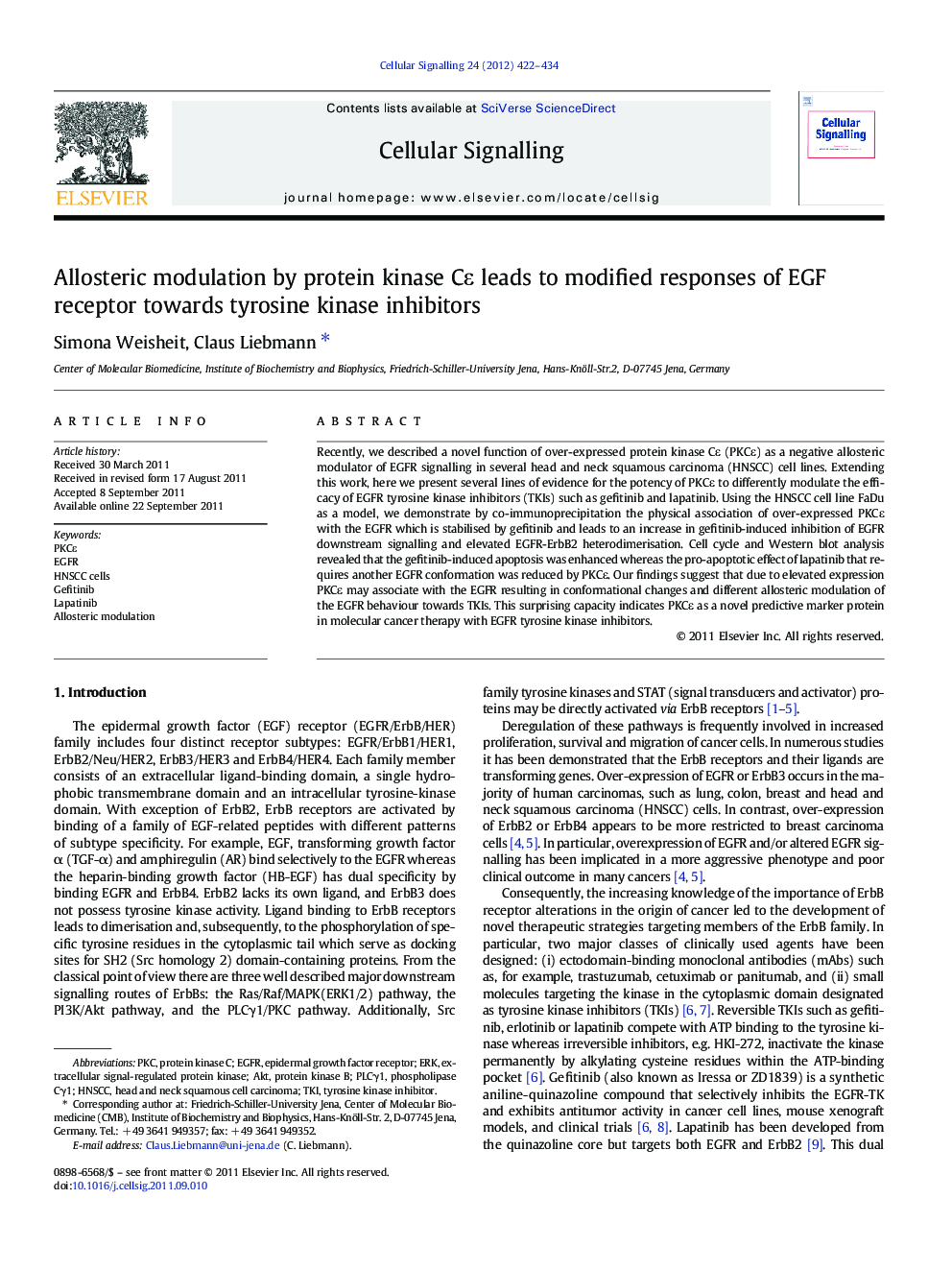| Article ID | Journal | Published Year | Pages | File Type |
|---|---|---|---|---|
| 1964695 | Cellular Signalling | 2012 | 13 Pages |
Recently, we described a novel function of over-expressed protein kinase Cε (PKCε) as a negative allosteric modulator of EGFR signalling in several head and neck squamous carcinoma (HNSCC) cell lines. Extending this work, here we present several lines of evidence for the potency of PKCε to differently modulate the efficacy of EGFR tyrosine kinase inhibitors (TKIs) such as gefitinib and lapatinib. Using the HNSCC cell line FaDu as a model, we demonstrate by co-immunoprecipitation the physical association of over-expressed PKCε with the EGFR which is stabilised by gefitinib and leads to an increase in gefitinib-induced inhibition of EGFR downstream signalling and elevated EGFR-ErbB2 heterodimerisation. Cell cycle and Western blot analysis revealed that the gefitinib-induced apoptosis was enhanced whereas the pro-apoptotic effect of lapatinib that requires another EGFR conformation was reduced by PKCε. Our findings suggest that due to elevated expression PKCε may associate with the EGFR resulting in conformational changes and different allosteric modulation of the EGFR behaviour towards TKIs. This surprising capacity indicates PKCε as a novel predictive marker protein in molecular cancer therapy with EGFR tyrosine kinase inhibitors.
► Physical association of EGF receptor (EGFR) with protein kinase Cε (PKCε). ► Allosteric modulation changes EGFR behaviour towards tyrosine kinase inhibitors. ► Increase in the efficacy of gefitinib but decrease in the efficacy of lapatinib. ► PKCε as predictive marker in particular cancer cells.
